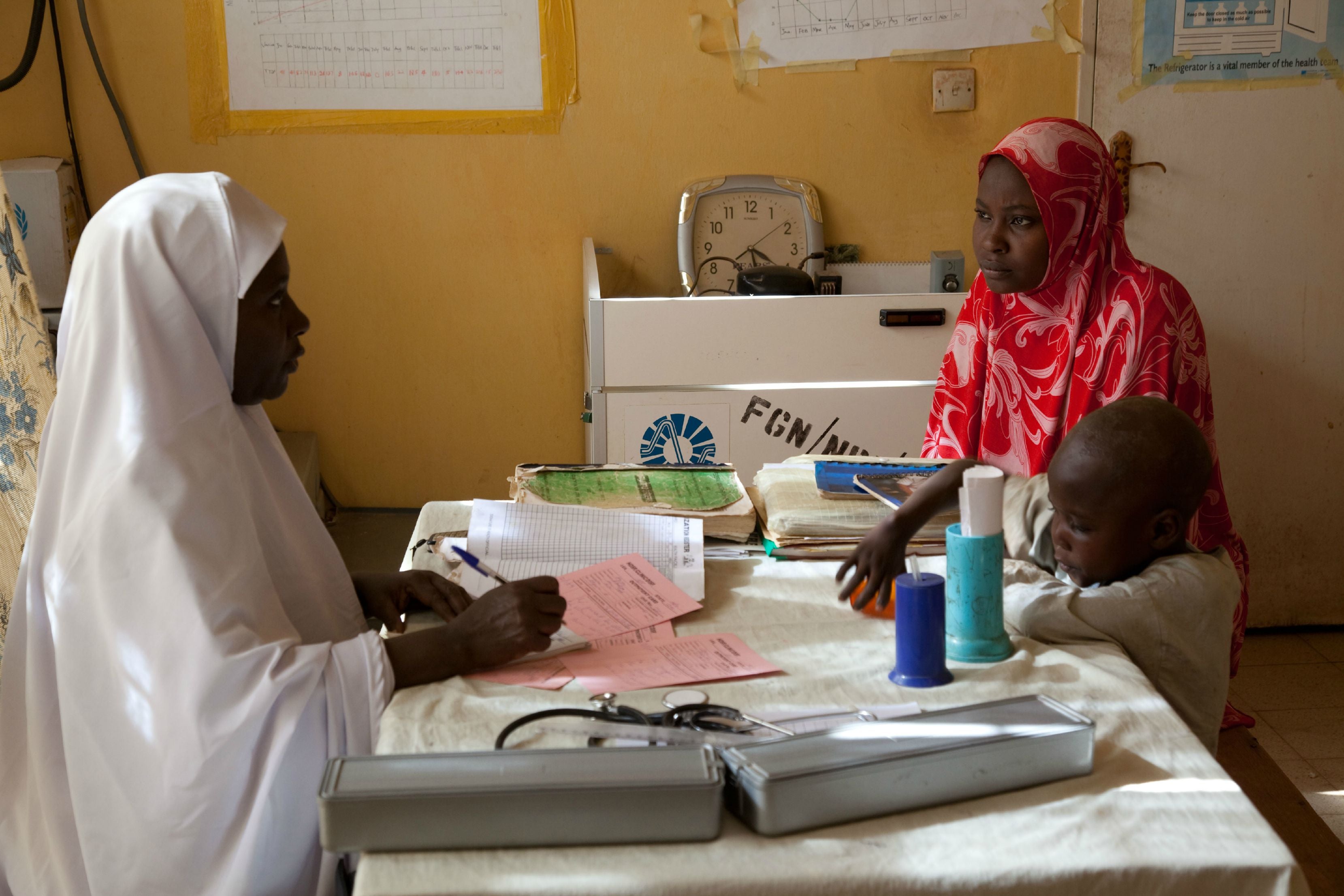Findings from the Field
Improving primary health care in Nigeria: What’s needed now
Originally posted on Impatient Optimists on September 24, 2015.
 Bill & Melinda Gates Foundation/Prashant Panjiar
Bill & Melinda Gates Foundation/Prashant Panjiar
People turn to the primary health care system in their communities both to stay healthy and to get care when they fall sick. From primary health care providers they seek prevention of disease, management of chronic conditions, access to treatment of various ailments and conditions, and family planning. When the primary health care system performs well, it meets the vast majority of people’s health needs, and that is essential if we are to make progress toward our nation’s health goals.
We are optimistic because, first, we are pleased by early evidence that Nigeria’s Primary Health Care Under One Roof (PHCUOR) policies seem to be succeeding. Instituted in 2011 to address intractable stewardship and governance problems facing Nigeria’s health care delivery system, the policies were designed to facilitate better management of resources by health care managers, increase patient confidence in and utilization of services, increase efficiency and coordination of health services, and reduce fragmentation. Data from Jigawa state shows the reforms are working, with increases in immunization coverage and attended deliveries following PHCUOR implementation.
Second, Nigeria’s National Health Act (NHAct), enacted in late 2014, officially recognizes Nigerians’ right to health – and through the NHAct, the Basic Health Care Provision Fund provides financial resources to improve primary health care. The NHAct has the potential to fuel dramatic public health improvements and rapid progress towards the attainment of Universal Health Coverage (UHC).
These two developments provide a critical policy base for primary health care system improvement efforts; however, decision-makers in our country, and around the world, often do not have the right information to understand the specific ways in which our systems are getting better or worse, and the reasons behind the trends."
For example, Nigeria increased its total health expenditure per capita by 103% over 13 years, from $102 in 2000 to $207 in 2013. Yet the country continues to perform relatively poorly on indicators measuring the sufficiency of health system inputs, the accessibility and quality of service delivery, and equity and health outcomes. This suggests that there may be poorly understood gaps or challenges with the primary health care system.
The problem is that we don’t have the right data. We need improvements to the health information system, regular and sustainable population and health-facility-based surveys, and a functioning vital statistics and civil registration system. We also need to strengthen the use of evidence-linked planning for resource allocation and utilization.
And that brings us to another reason we are optimistic about the future of primary health care in Nigeria. A new partnership called the Primary Health Care Performance Initiative (PHCPI) has been formed to catalyze improvements in primary health care in low- and middle-income countries globally through better measurement and knowledge-sharing. Part of the partnership’s focus is better measuring primary health care service delivery, including quality of care and the patient experiences that play a role in determining health outcomes.
We all know that policies, infrastructure, and resources are not enough to ensure a primary health care system performs well and meets people’s health needs. PHCPI is designed to give decision-makers the tools they need to understand the drivers of primary health care performance and best practices to improve their own systems. Therefore, in synergy with the ongoing PHCUOR policy reforms, PHCPI will help Nigerian decision-makers identify what investments and policies deliver the best and most efficient care to meet communities’ needs and improve health outcomes.
There are no easy answers when it comes to health system improvements. The PHCUOR reforms and the National Health Act are our starting point, and we need to couple them with a motivated health workforce and improvements to the National Health Management Information System. By doing so, and leveraging PHCPI’s tools and resources for evidence-based decision making, we in Nigeria will be well-positioned to realize better-performing PHC systems that deliver significantly improved health outcomes.
Dr. Muhammed Lecky is the Executive Secretary of the Health Reform Foundation of Nigeria (HERFON). Tunde Segun is the Nigeria Country Director for Evidence for Action (E4A).
